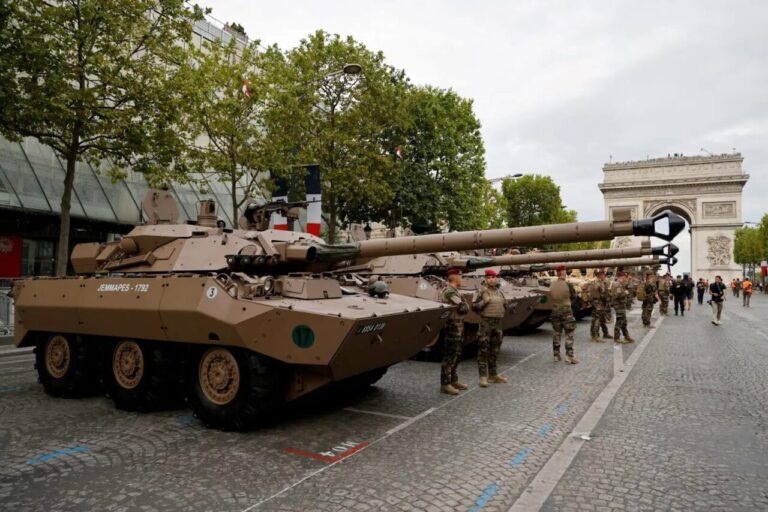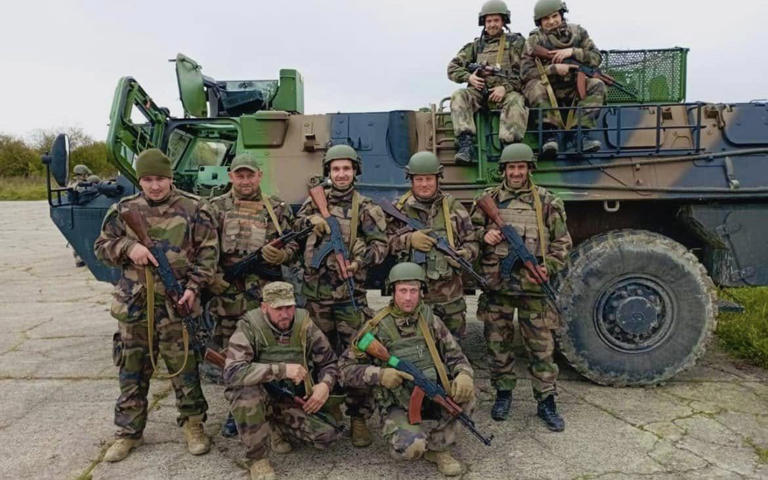A few days ago, the most widely read journal of international politics in the United States, Foreign Affairs published an article by University of Chicago professor John Mearsheimer entitled “Playing with Fire in Ukraine: the Underappreciated Risks of Catastrophic Escalation.”
The online version is accessible here – https://www.foreignaffairs.com/…
This publication was a major event in itself given FA’s orthodox spin on everything to do with Russia and the challenges to the Washington narrative made by Mearsheimer ever since his article “Why the Ukraine Crisis is the West’s Fault” appeared in the autumn 2014 issue of Foreign Affairs. At the time, that article prompted a paroxysm of rage among the hardliners who form the majority of the American foreign policy community and of the journal’s readers.
The video of a speech on the same subject which Mearsheimer made in 2014 shortly after the article came out has been viewed by more than 12 million visitors to the www.youtube.com site. An updated version of the same speech presented on youtube during this spring has attracted more than 1.6 million viewers. It is safe to say that John Mearsheimer is the most widely seen and listened to academic disputing the conventional wisdom on the Ukraine war today.
I freely acknowledge the merit of Mearsheimer’s new article: to warn how the conflict in Ukraine could easily spin out of control and escalate to a nuclear war. The White House team of inexperienced and ignorant advisers must be shaken from their complacency and anything published in Foreign Affairs will necessarily be brought to their attention, whereas a piece published by www.antiwar.com, for example, will be burned before reading.
However, this does not excuse Mearsheimer from basing himself on the same restricted and distorted sources of information as are used by mainstream media and mainstream academics, while ignoring other sources of information that would give greater depth to his analysis and possibly change his conclusions substantially. To be explicit, I believe he has been listening too closely to Washington and Kiev’s rosy forecasts of a counter-offensive that will result in a stalemate, possibly in a Russian defeat, and he is not listening to Russian reporting on the progress of their campaign on the ground, which points to a slow and steady grinding down of all in their path to conquest of the Donetsk oblast, meaning the capture of the entire Donbas.
The Russian advance is only slightly slowed by diversion of troops to the Kherson region to nip in the bud that well advertised Ukrainian attack. The latest news is of the Russians approaching the strategic strong points of Slavyansk and Kramatorsk, the cradle of the Donbas independence movement in 2014. By taking these central region cities, they are cutting off the supply of weapons to the most heavily fortified Ukrainian positions just outside Donetsk city, which have been bombarding residential districts and killing civilians daily for the past eight years. This explains their finally overrunning and destroying Ukrainian positions in the town of Peski just two kilometers from the DPR capital this past week.
The capture of Peski was not reported in Western media just as the war crimes nature of its activity, concentrated on civilian targets in violation of international conventions on conduct of war, was never reported. Thus, the Russian advance carries no hint of ‘shock and awe,’ which is to say the Russians are doing nothing to grab headlines and force the hand of Biden to implement some disproportionate escalation.
The Russians’ latest timetable, as announced in their leading televised talk shows, is to complete the liberation of the Donbas by year’s end. After that, if there is no Ukrainian capitulation, the likely case will be ongoing advance through Odessa to Transdnistria and the Romanian border, at which point no peace treaty would be needed by anyone. The Zelensky regime could be left to die on the vine as mutual recriminations shake his power base.
Mearsheimer’s article goes into great detail over the many possible scenarios for dangerous if not catastrophic escalation of the conflict. But these are myriad and largely unforeseeable, so that he ultimately covers only a fraction of the possibilities for things to go haywire. They are, as he admits, not very likely to occur. Amen.
One of those possibilities for catastrophic escalation that has captured the attention of global media at present is the stand-off at the nuclear power plant in Russia-occupied Zaporozhie, Europe’s largest such power plant. Both sides to the conflict are playing up the threat inherent in artillery and rocket strikes on a nuclear installation for propagandistic purposes, to paint the other side as madmen: the Ukrainians speaking of the Kremlin leadership as nuclear terrorists and blackmailers, the Russians speaking of the Ukrainian forces firing on the power station as ‘apes carrying grenades.’ Surely damage to the plant followed by the release into the atmosphere of radioactive substances was on the mind of Mearsheimer when he formulated his article. However, let me be perfectly clear: this is a phony issue, just as the alleged Russian blockade of Ukrainian ports supposedly was forcing starvation on African nations that were failing to get grain they had ordered from Ukraine before the conflict. The fact is that the nuclear reactors are encased in meter-thick concrete walls which are impervious to all the projectiles which the Ukrainians are capable of launching. The risks are to the administrative buildings and cooling systems. The Russians are fully capable of shutting down the nuclear reactors at any time to prevent a catastrophe.
Now let me turn attention to the nuclear risk that Mearsheimer identifies in the article. He has taken up exactly the same argument as mainstream commentators in the United States, namely that Russia might resort to nuclear weapons in case the campaign turns against them due to higher levels of Western intervention including troops on the ground. We all know that troops are already on the ground, namely the ‘instructors’ who are directing fire for HIMARS. We know that senior American and other Western officers liaising with their Ukrainian counterparts were recently blown to bits by the Russian rocket attack on Vinnitsa. That was all hushed up and the only tip-off of this disaster for Washington was the firing of the Ukrainian intelligence leadership the next day.
Of course, no one knows what might yet force an escalation. But there again, Mearsheimer misses some important considerations. Why does he assume the Russians must escalate to nuclear options and why those options would be directed against Kiev and not, for example, against London? More to the point, he is missing the fact that the Russians have hardly begun to fight, as Putin recently said publicly. They have not mobilized and put out draft notices, they have not put the economy on a war footing. And they have not deployed their most consequential weaponry. Instead, they have held it back, ready for use if necessary in a direct war with NATO. This is massively destructive conventional payloads carried by hypersonic rockets and similar.
Then there is another dimension to the conflict which Mearsheimer does not address in his article though it will exert a decisive influence on whether Washington or Moscow wins the tug of war: the economic damage from sanctions on Europe through blow-back that is about to become politically unsustainable as the fall and winter heating season arrives. The Baltics and Poland are and will remain immune to reason, led as they are by delusional Russophobes. However, when the inevitable street demonstrations come in France, the most volatile of the major EU states, followed by Eastern Germany and even by Belgium, a more passive country, as I hear from the local elites I talk to, then the politicians of Europe will head off in contradictory directions and unity will collapse. The Russians are sure to win this psychological war despite all the efforts of EU state media to put a lid on it. The day when Scholz gives the go-ahead to opening Nord Stream II will mark the Russian victory and put an end to US-driven suicidal decision making here in Europe.
For all of the above reasons, I urge professor Mearsheimer and his followers to pay closer attention to what the Russians are saying and less attention to the hot air coming out of Washington.





